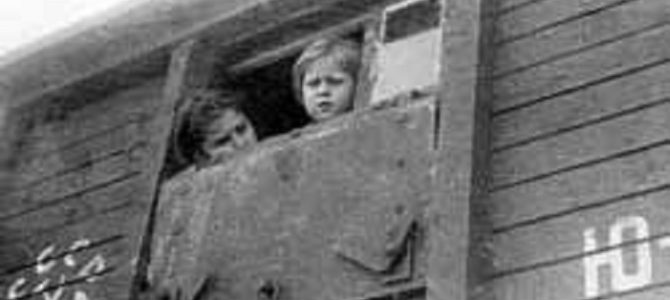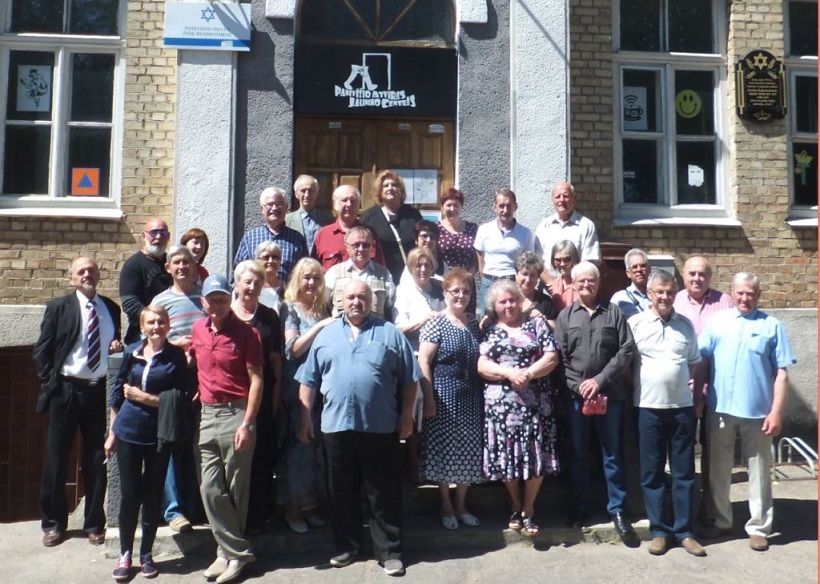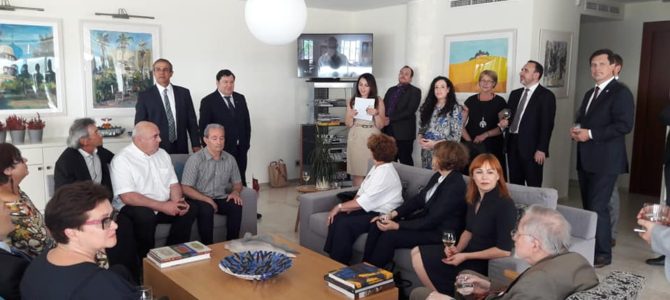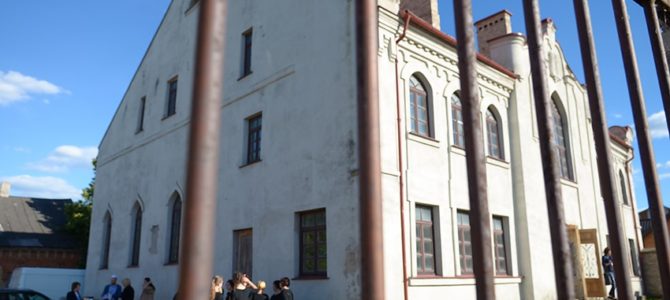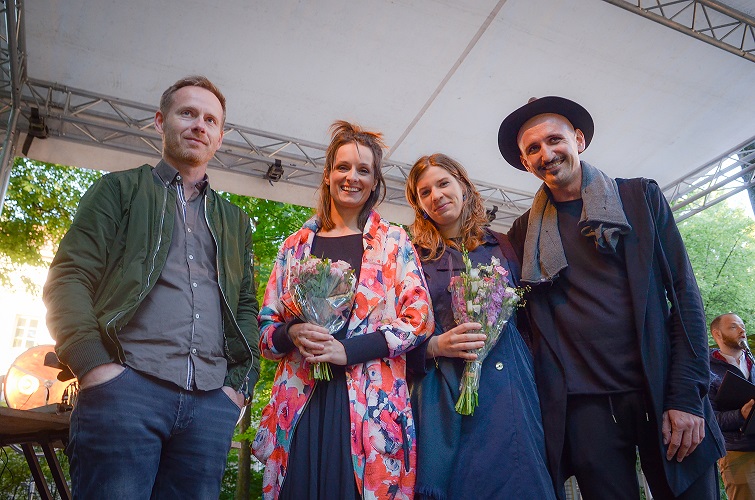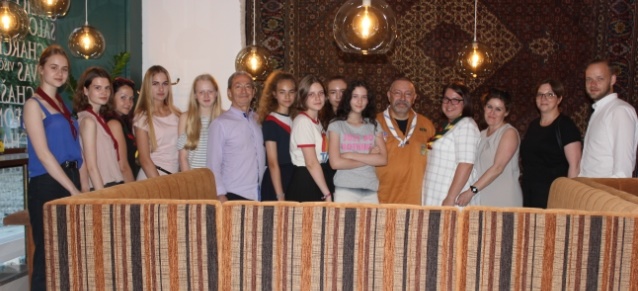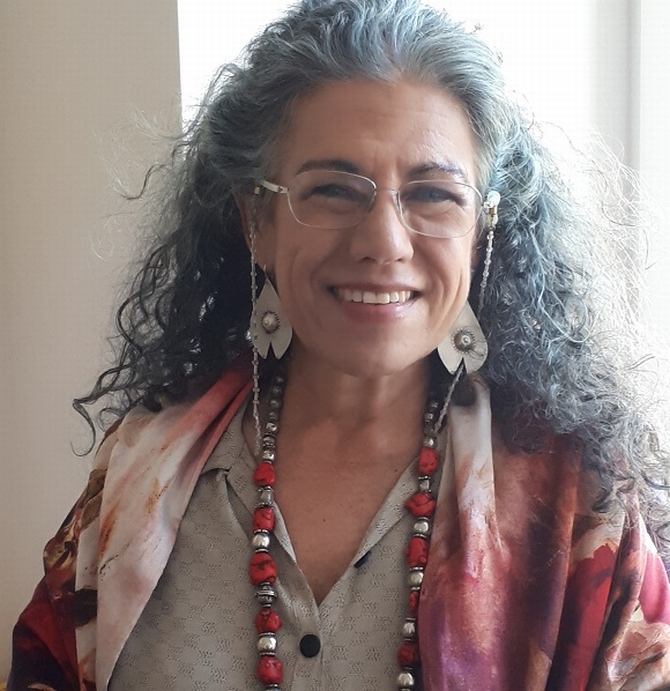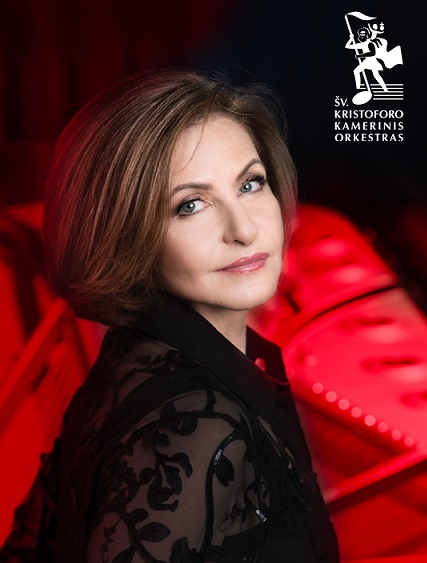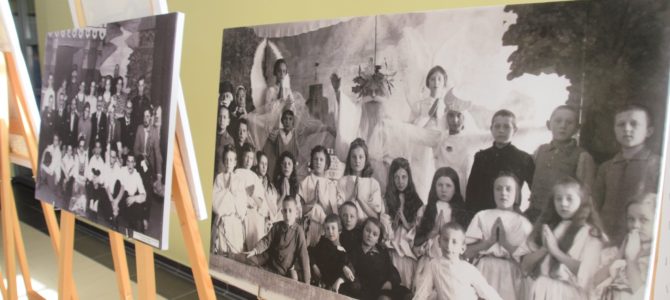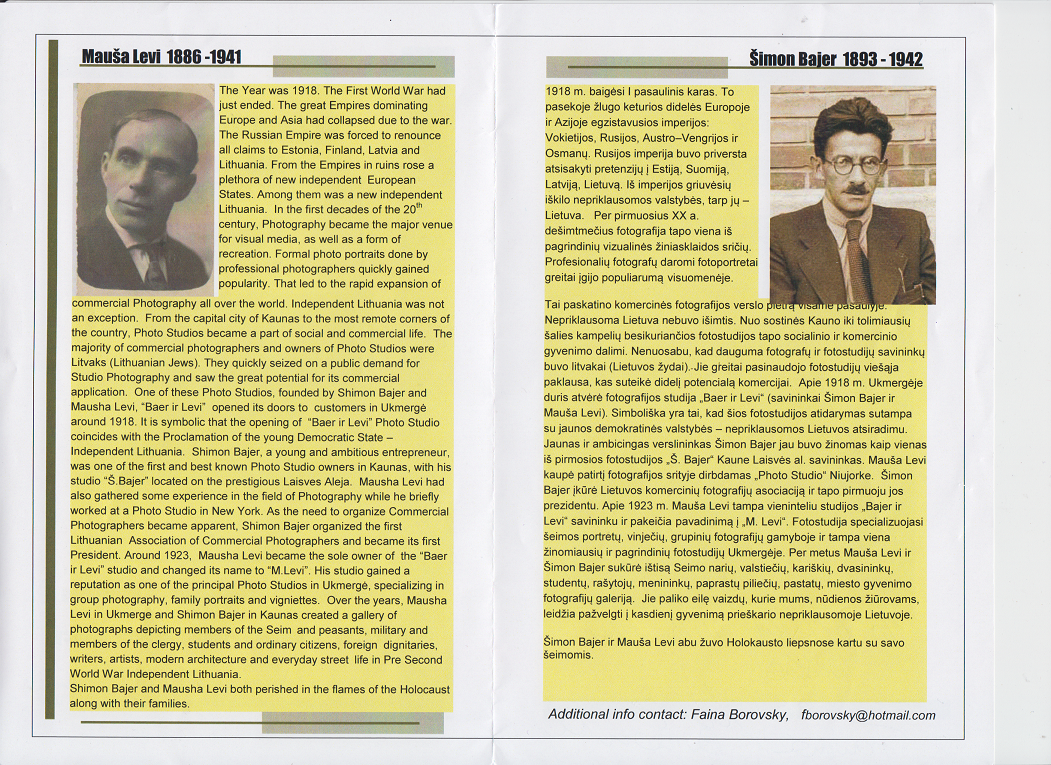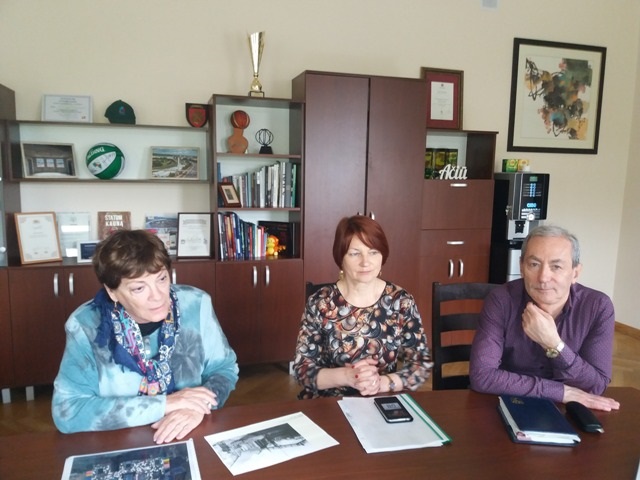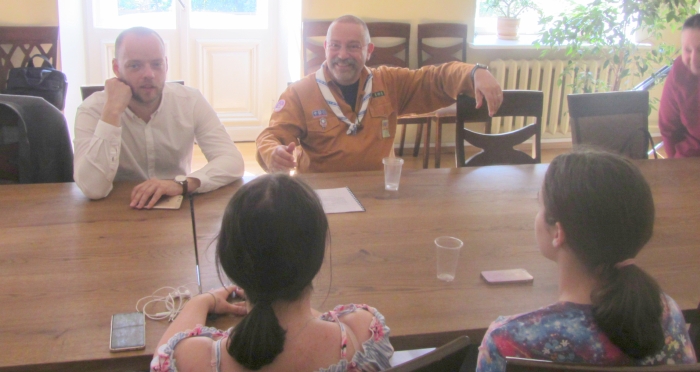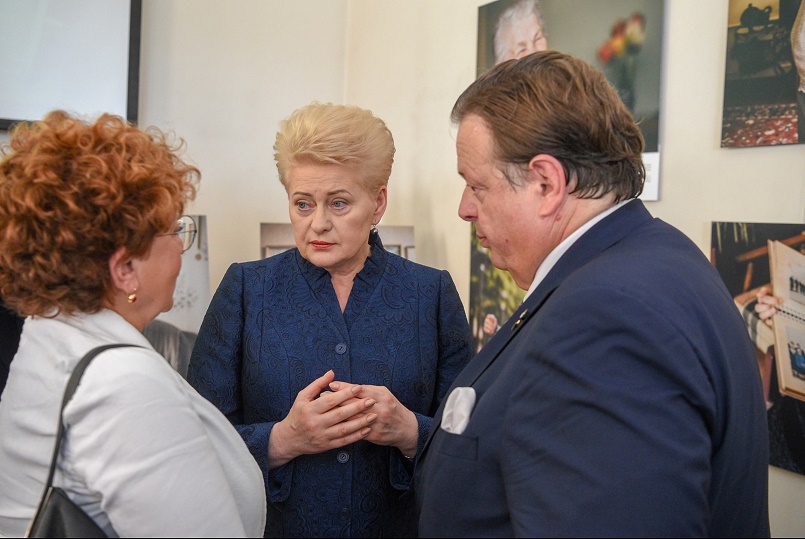
English and Lithuanian editions of Dr. Shimon Lev’s book “From Lithuania to Santiniketan: Schlomith Flaum and Rabindranath Tagore” (originally written in Hebrew) were launched at the Lithuanian Jewish Community on the evening of May 31 with pageantry, live Indian music and dance, readings of selections and speeches by the author, the Lithuanian intelligentsia and members of the diplomatic corps.
Shovana Narayan, recipient of a national award in India and classical Indian dance master, performed several pieces based on Tagore’s poetry with two assistants to kick off the event. Narayan is related to Rabindranath Tagore.
Judita Gliauberzonaitė read selections of Tagore’s poetry in Lithuanian.
Lithuanian Jewish Community chairwoman Faina Kukliansky welcomed the audience and speakers, noting the unique nature of Flaum’s travelogues and testimony, and said it wasn’t very often the LJC hosted such highly cultural and intellectual evenings as this one.
Former Lithuanian ambassador to India Laimonas Talat-Kelpša and his wife, celebrating her birthday, attended and Talat-Kelpša spoke about the remarkable travels Schlomith Flaum undertook in the early 20th century and the connections between Lithuania, India, Israel, and the connections between Zionism, the national movement in India and Lithuanian statehood.
Author and Israeli Litvak Dr. Shimon Lev talked about how Flaum became the earliest source of information about India in nascent Israel, her strength as an early female traveller and travel writer and the magic involved in the process of translation. He also spoke about Vilnius as a center of learning with the Vilna Gaon as the preeminent Jewish scholar in the modern age.
